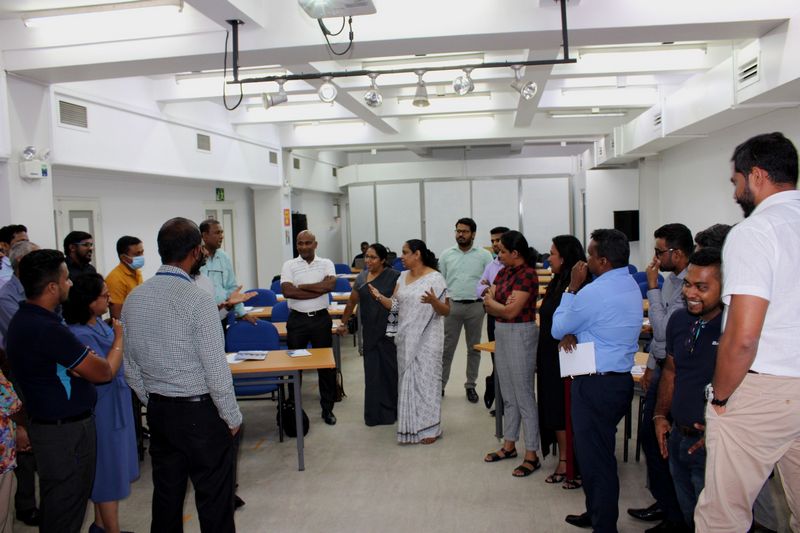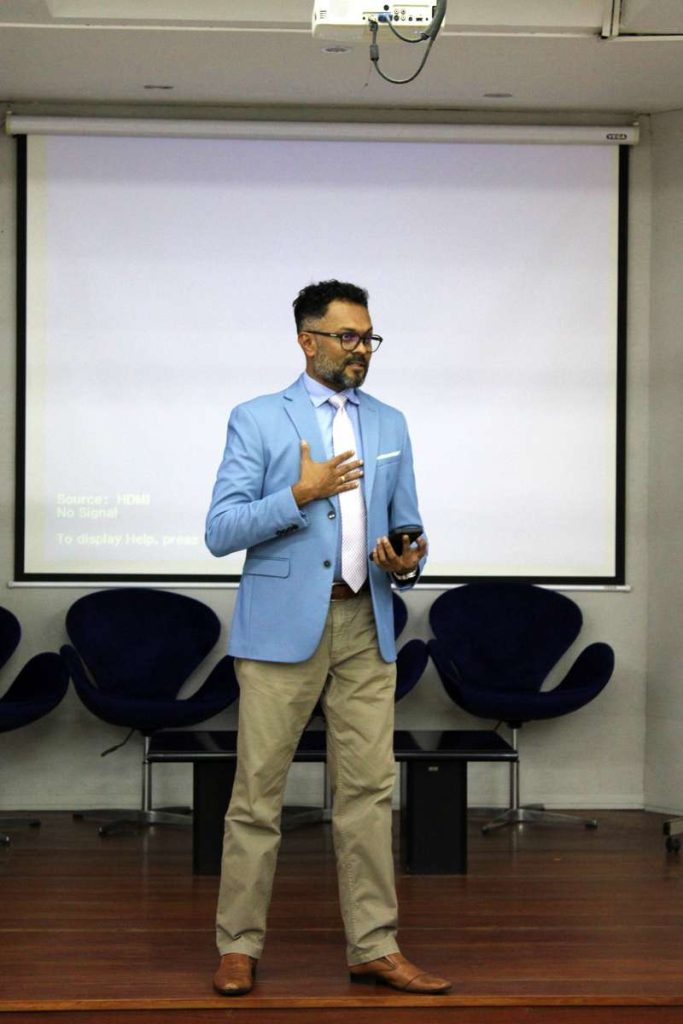
‘Formation of Effective Bipartite Safety and Health Committees’; the latest addition to Employers’ Federation of Ceylon’s Training Mix
- The workshop aims to guide participants for formulation of Bi-Partite OSH committees in compliance with the National Guidelines recently promulgated by the Department of Labour and to equip them with the necessary skills for its effective operations
- The inaugural batch consists of 29 participants from 14 sectors
- The training comes following the launch of the National Guidelines of Bipartite OSH Committees
The Employers’ Federation of Ceylon (EFC) recently announced the successful launch of the ‘Formation of Effective Safety & Health Committees’ Training Workshop. The workshop aims to guide participants in the formulation of Bi-Partite OSH committees in compliance with the National Guidelines recently promulgated by the Department of Labour and to equip them with the necessary skills for its effective operations, fostering collaborative efforts to improve occupational safety and health (OSH) in their respective organizations.
The inaugural batch brought together 29 participants from 14 diverse sectors, including hospitality, telecom, and manufacturing industries.

This timely initiative comes at the heels of the recent nationwide rollout of the ‘Guidelines on Bipartite Occupational Safety and Health Committees’ by the Ministry of Labour and Foreign Employment. The committee provides a platform for management and union/worker representatives to come together, leveraging their distinct roles, expertise, and experiences to create a culture of safety within organizations.
Vajira Ellepola, The Director General/CEO of the Employers’ Federation of Ceylon, expressed his appreciation to all the participants and emphasized the significance of OSH.
“Workplace bi-partite committees will be an important mechanism and the focal point of highlighting the importance of OSH. With ILO recognizing OSH as a fundamental right at work it will be important for Sri Lanka and organizations like ourselves, to take it forward and promote a culture of safety,” Ellepola said.
Participants of the inaugural workshop were exposed to various topics, including effective communication, facilitation and negotiation, and the practical aspects of Bipartite OSH Committees.
Gaya Kariyawasam, Manager of Occupational Safety and Health of the EFC noted that following the workshop the attendees will have a three-month timeframe to implement the key learnings in their respective organizations. This practical application of knowledge acquired during the workshops will enable participants to actively contribute to the improvement of workplace relations and foster a culture of collaboration and mutual respect based on the learning of Better Work’s Master Trainers programme.
Yashoravi Bakmiwewa, Senior Assistant Director General and Head of Training of the EFC noted that with the launch of the national guidelines of Guidelines on bipartite OSH committees, renewed importance has been given to creating a culture of safety.
“Initiatives like this are a testament to effective collaboration between various stakeholders. We consider this training programme a milestone in our journey towards promoting OSH, which will be the most recent addition to the training mix that EFC offers,” Bakmiwewa said.
Speaking on the progress made in nationalising Bipartite Occupational Safety and Health Committees, Kesava Murali Kanapathy the Head of the Better Work Programme of Sri Lanka noted that implementation of such an initiative could be used as a mechanism to promote dialogue and trust, thus enhancing social dialogue at workplaces.
” The inaugural ‘Formation of Effective Safety & Health Committees’ Training Workshop serves as a significant milestone in fostering collaboration and empowering workers and employers to create safe and healthy work environments. Through open dialogue and shared expertise, we can establish a culture of safety that safeguards the well-being of the workforce and promotes sustainable growth. We are excited about the positive impact this workshop will have on enhancing workplace relations and ultimately improving the lives of workers across various sectors.” Kanapathy said.
EFC, BW and other social partners are committed to facilitating ongoing workshops, promoting dialogue, and supporting the development of effective labour-management relationships throughout Sri Lanka. The ‘Formation of Effective Safety & Health Committees’ Training Workshop serves as a foundation for future collaboration and engagement, strengthening the workforce and fostering sustainable economic growth.
About us
Better Work – a collaboration between the United Nation’s International Labour Organization (ILO) and the International Finance Corporation (IFC), a member of the World Bank Group – is a comprehensive programme bringing together all levels of the garment industry to improve working conditions and respect of labour rights for workers, and boost the competitiveness of apparel businesses. Currently, the programme is active in 1,700 factories employing more than 2.4 million workers in twelve countries. As well as advising factories, Better Work collaborates with governments to improve labour laws, and with brands to ensure progress is sustained. Our vision is a global garment industry that lifts millions of people out of poverty by providing decent work, empowering women, driving business competitiveness and promoting inclusive economic growth.




